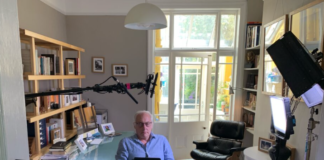- A year to forget… - 5th January 2026
- Programme not well produced… - 2nd January 2026
- Multi million pound Match of the Day! - 1st January 2026

During a 40 year career as a journalist, for our Editor Phil Parry political stories have been all-important, so he looks with interest as the huge number of recent Tory Prime Ministers becomes a key election issue, with the five featuring last week on the front of a UK newspaper.
Voters today may look askance at what has happened.
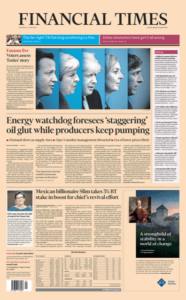 Since 2010 we have had FIVE Tory Prime Ministers (PMs), who have served on average less than three years each.
Since 2010 we have had FIVE Tory Prime Ministers (PMs), who have served on average less than three years each.
This compares with two in thirteen years for Labour!
The cost of having this number of former PMs may also be a factor in the General Election (GE).
Former UK PMs are entitled to an allowance of up to £115,000 a year for life, and the bill could balloon to nearly £1 million a year.
America, France and Germany all fork out in similar ways. But their leaders don’t change like the weather. Three former prime ministers claimed their money 30 years ago, at a total cost to the taxpayer of only £250,000.

Pictures of them have even featured on the front page of the Financial Times (FT).
The number of Secretaries of State (SoS) or politicians in high office has also been bewildering – there have been eight foreign secretaries, seven home secretaries (six of them since 2016), seven chancellors (again six since 2016), seven transport, nine business, nine work and pensions, 10 education, and 12 media/digital.

In fact the churn rate has been unbelievable, and may influence voters.
Rather than milking popularity with familiar faces being shown to people, they will not actually know who the key decision-makers are!
Can YOU name the business secretary before the election was called?!

It was Kemi Badenoch by the way, who may be a contender for the Tory leadership if Rishi Sunak loses the election.
So rather than parading recognisable figures such as Geoffrey Howe, Nigel Lawson, or Gordon Brown, they have shown complete unknowns.

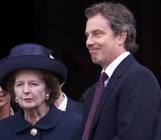
Even talented (if controversial) people like Michael Gove bowed out early.
This seems a far cry from previous elections, under Margaret Thatcher, John Major, or Tony Blair, when you might have had a fighting chance of actually knowing who the person hectoring you WAS!
It appeared to be very different in the past.
The first ballot I covered was the 1987 General Election (GE) when I worked for Cambrian News Agency supplying stories for all the UK newspapers and broadcasters, as an extremely green 22 year old reporter.
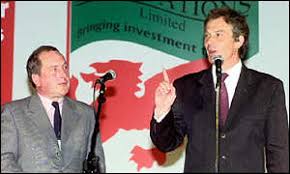
I was stationed in the Caerphilly count, and tasked with the responsibility of phoning the results back to my office, where they were then fed on to the wires.
This was the MP seat of the former Secretary of State for Wales (SoSfW) Ron Davies, who was at the time a Labour opposition spokesman and a rising star, so that made it an important count.
 Ron, of course, won his seat easily, which was always going to be the case.
Ron, of course, won his seat easily, which was always going to be the case.
I then reported on a succession of election campaigns (or presented the results through the night), at the BBC, including votes for what was then the Welsh assembly.
These were on BBC Cymru Wales television, or BBC Cymru Radio Wales (RW), in special programmes, or the evening news.
As a freelance journalist I have also covered elections since I left the corporation.
All of this has stood me in good stead, but even I DON’T KNOW who a lot of them are now – good for the FT for reminding me of the recent PMs!

Some of the political stories Phil has covered before he was gripped by the rare neurological condition Hereditary Spastic Paraplegia (HSP), have been released in a major book ‘A GOOD STORY’. Order it now!
Regrettably publication of another book, however, was refused, because it was to have included names.
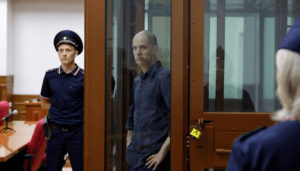
Tomorrow – Phil looks at the dangers facing reporters in other countries, and how it is now underlined by the appearance of one in a Russian court after his detention for over a year, with a shaven head surrounded by guards.









